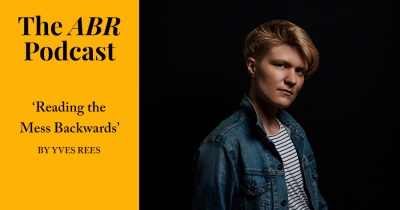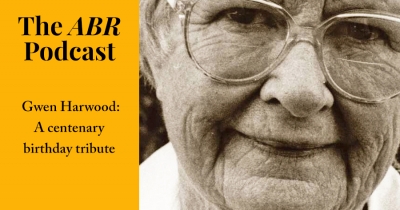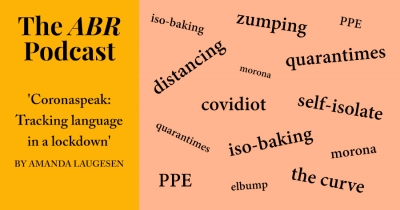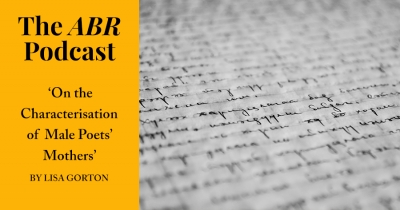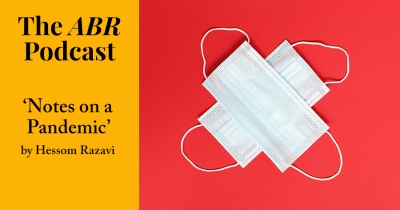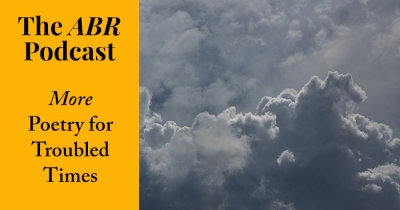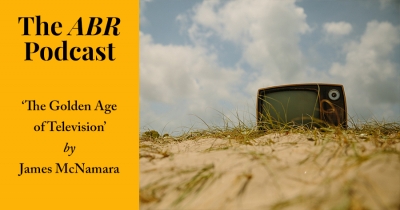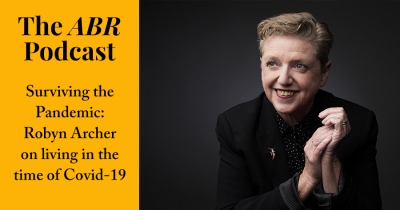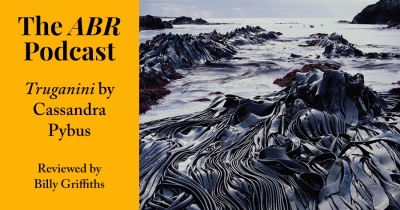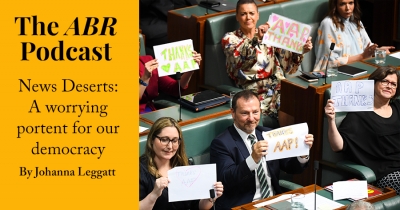Accessibility Tools
- Content scaling 100%
- Font size 100%
- Line height 100%
- Letter spacing 100%
Podcast
The ABR Podcast
Released every Thursday, the ABR podcast features our finest reviews, poetry, fiction, interviews, and commentary.
Subscribe via iTunes, Stitcher, Google, or Spotify, or search for ‘The ABR Podcast’ on your favourite podcast app.
Episode #186
Soul blindness: Clerical narcissism and unfathomable cruelty
By Scott Stephens
In this week’s ABR Podcast, Scott Stephens reviews a book by Anne Manne: Crimes of the Crimes of the Cross: The Anglican paedophile network of Newcastle, its protectors and the man who fought for justice. Why is narcissism a central theme for a book about child sexual abuse? Stephens writes: ‘without the capacity or willingness to be attentive to the humanity of another person’, unfathomable cruelty becomes possible. Scott Stephens is the ABC’s Religion & Ethics online editor and the co-host, with Waleed Aly, of The Minefield on ABC Radio National. Listen to Scott Stephens’s ‘Soul blindness: Clerical narcissism and unfathomable cruelty’, published in the May issue of ABR.
Recent episodes:
The Calibre Essay Prize is one of the world's leading prizes for an original non-fiction essay. This year was the fourteenth time ABR has presented the prize, which is now worth a total of $7,500. The winner of this year's prize is Dr Yves Rees, whose essay is titled 'Reading the Mess Backwards'. Rees, who came out as transgender aged 31, describes their essay as 'a story of trans becoming that digs into the messiness of bodies, gender, and identity'. The full essay appears in the June-July issue of ABR.
... (read more)Gwen Harwood, who died in 1995, was born on 8 June 1920, in Brisbane, of course, which she went loved dearly. Harwood seems increasingly to have been one of the finest poets Australia has ever produced. She was much loved; anyone who knew her relished her wit, her directness, her inextinguishable spirit. To mark the centenary of her birth, ABR asked a number of her colleagues and admirers to record some of her poems. Happily, there are hundreds of them to explore.
... (read more)Lexicographers, not just newspapers and television, respond to disasters. Language is never fixed, never finished, never done. In recent months, language has been shaped by the coronavirus. In this episode, Amanda Laugesen, director of the Australian National Dictionary Centre at ANU and editor of The Australian National Dictionary, discusses coronaspeak, the language of lockdown.
... (read more)Lisa Gorton began publishing in ABR in 2003. Since then she's given us several dozen review essays and poems. Lisa has published three poetry collections, most recently the acclaimed Empirical, a Giramondo publication. Her novel, The Life of Houses, shared the 2016 Prime Minister's Literary Award for Fiction.
This month we published Lisa's long poem 'On the Characterisation of Male Poets' Mothers'. As Lisa explains, the poem almost entirely comprises a medley of quotes that describe famous poets' mothers – sourced all from Wikipedia.
... (read more)In his first article for ABR, 'Notes on a Pandemic', Behrouz Boochani Fellow Hessom Razavi offers a powerful reflection on the current Covid-19 crisis. Dr Razavi, an ophthalmologist, reflects on his own clinical experiences and interviews with senior medicos (including Dr Nick Coatsworth, the Deputy Chief Medical Officer) to provide a nuanced and compelling portrait of our changing lives. He examines the ways in which society has responded to the pandemic and questions what kind of world his daughter (due shortly) will be born into.
... (read more)All literature, but poetry in particular for some of us, becomes more important during the pandemic. Last month, we invited a group of poets and critics to read favourite poems of theirs, from any country or century. We know how much you enjoyed it; the response has been fantastic. So we've invited fifteen more poets and poetry lovers to read a poem that resonates for them and that might speak to others as we hunker down and live more privately.
... (read more)During the Covid-19 crisis, many of us are surfeiting on television drama from Netflix, Stan, and the rest of them. Back in 2015, we published James McNamara's Ian Potter Foundation Fellowship essay 'The Golden Age of Television?', which considers the ascendancy of television drama and its cultural significance. Listen to James reading his essay, which appear in ABR's film and television issue in April 2015.
... (read more)Peter Rose – before introducing this week’s ABR Podcast guest – updates readers on ABR’s response to the Covid-19 pandemic and the Australia Council’s inexplicable decision not to fund ABR in 2021–24. Then Robyn Archer – renowned performer and ABR Laureate – currently hunkering down in Melbourne, reflects on how people are surviving and what Australia might look like when it emerges from this crisis.
... (read more)The extraordinary life of Truganini, an Aboriginal woman known as the 'last Tasmanian', is explored in this turbulent history by Cassandra Pybus. An inspiring and haunting story, Truganini’s life spanned psychological and cultural shifts nearly beyond comprehension. In this episode of The ABR Podcast, Billy Griffiths, author of the award-winning Deep Time Dreaming, reviews Truganini, Pybus's history of a woman reclaimed by the Tasmanian Indigenous community as a symbol of 'rights, identity, ownership, and survival'.
... (read more)The imminent closure of Australian Associated Press, or AAP, has sounded alarm bells for many citizens and journalists already worried about the lack of media diversity in Australia. AAP has long played a fundamental role in investigative journalism, which we need more than ever in an age of government intrusion, evasion, and over-reach. Johanna Leggatt, a journalist who has worked for Fairfax, News Corp, and AAP, writes about this troubling threat to journalism.
... (read more)

